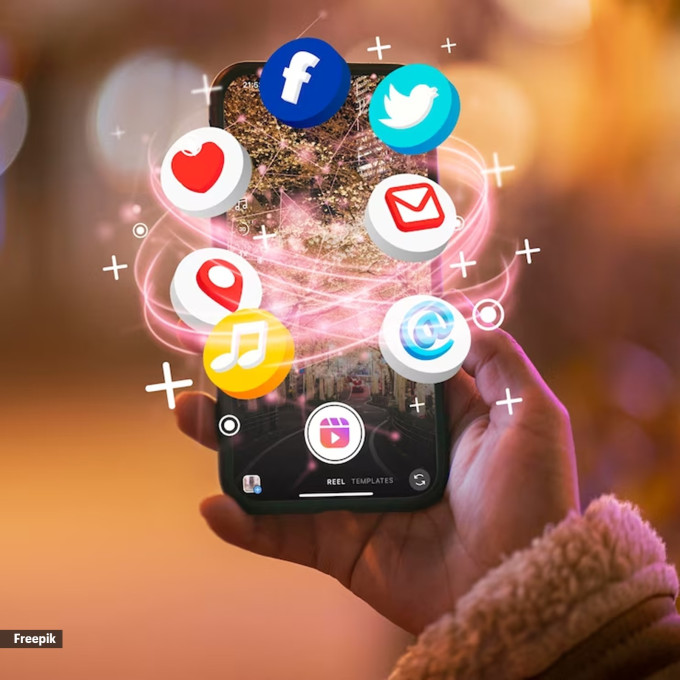Is your attention as fleeting as a popping of a kernel? Here’s how to fix your ‘popcorn brain’
Do you feel an itch to check your phone every couple of minutes? Are you unable to concentrate on a task for long? Or, even worse, are you unable to read even a few pages from a book, which you earlier used to finish in under a week? If so, you might be suffering from a ‘popcorn brain’. Yes, this is an actual phenomenon in the world of psychology, according to experts.
“Coined by the University of Washington researcher David Levy in 2011, the term ‘popcorn brain’ refers to a condition characterised by a lack of attention and focus, which makes a person’s thoughts jump from one thing to another — similar to the popping of popcorn kernels,” Dr Srikanth Srinivasan, chief medical director at Niyama Digital Healthcare tells indianexpress.com.

Despite this not being a diagnosable medical condition, Dr Srinivasan points out that it is a well-recognised phenomenon, which is predominantly caused by the excessive use of the internet and social media.
One such person who claims to be plagued by a ‘popcorn brain’ is the 29-year-old PR professional, Sonia Jakhwal, who says she has experienced this several times in her daily life. During one of her team discussions where she needed to present an idea for a project, Jakhwal felt her mind “drifting away”.
“Despite the importance of the meeting, my mind seemed to be leading a life of its own as it wandered away into the world of Korean dramas I hadn’t watched, potential family outings, and even cooking recipes I had recently discovered on YouTube,” she says.
Such instances are not uncommon though. Research done by the University of California at Irvine revealed that globally attention spans have been declining — from around 2.5 minutes to around 47 seconds over the last 20 years.
Not only this. A Japanese study published in 2023 in the journal JAMA Pediatrics found a link between screen time at age one and developmental delays, especially in areas like communication, gross and fine motor skills, problem solving and personal and social skills.
Sidharth Chatterjee, a communications consultant, too, has experienced a ‘popcorn brain’, attributing its rise to the pandemic.
“I had this constant urge to look at social media as there was nothing else to do while being cooped up inside our homes,” Chatterjee says. However, this phenomenon has stayed with him even post the pandemic. “I am currently pursuing a course and it’s hard for me to concentrate on studying it even 30 minutes at a stretch without looking at my notifications,” he adds.
Similarly, Kashika Sachdeva, a psychotherapist, found herself easily distracted when the first Covid-19 lockdown happened in India. “The boom of Instagram reels, TikTok, online work portals, and meeting apps, helped me feel less isolated, but at the same time, I struggled sitting just by myself, writing, cooking or doing any activity that required me to live in the moment and focus on what was right in front of me,” she shares.
So, what really causes a ‘popcorn brain’?
 Research done by the University of California at Irvine revealed that globally attention spans have been declining. (Source: Freepik)
Research done by the University of California at Irvine revealed that globally attention spans have been declining. (Source: Freepik)
The simple answer to this: social media. “Dopamine, a neurotransmitter, plays a crucial role in feelings of pleasure, motivation, attention and happiness. It also contributes to the brain’s reward system, reinforcing certain behaviours that lead to rewards. Social media acts as a quick-fix drug — providing moments of euphoria in a short period,” says Dr Rimpa Sarkar, director at Sentier Mind. “Notifications from social media platforms offer instant gratification, reinforcing the brain’s tendency to seek pleasure. This constant stimulation conditions our brains to adapt to the rapid and continuous flow of information,” she adds.
As a result, we become less adept at navigating the slower pace of real-life, which Dr Sarkar explains may lead to frustration or anger when offline experiences fail to match the immediate pleasure of social media.
Over time, Dr Kersi Chavda, says this continual need for attention and frequent shifts between tasks can lead to a feeling of mental restlessness or the brain ‘jumping around’. “This makes it difficult to maintain focus on any single task for an extended duration,” the consultant psychiatrist at P.D. Hinduja Hospital and Medical Research Centre, Mahim, adds.
Additionally, social media is designed with such an alluring interface, says Pratibha Singh Chouhan, clinical psychologist, that it keeps the user hooked. “Social media websites use algorithms to deliver a constant flow of information, notifications, and entertainment, all customised to suit our interests.”
She is not wrong. According to reports, the number of social media users worldwide has reached a record 4.9 billion people, and it is anticipated to increase to as many as 5.85 billion users by 2027. Moreover, the average time spent on social media rose to 2 hours and 41 minutes in 2020, with Gen Z leading in consumption with an average of 4.5 hours per day, compared to 3.8 hours for millennials.
How is this affecting our brains?
A survey done by the Institute of Opinion and Marketing Studies in France conducted in 2023 revealed that 65 per cent of parents believe the use of screens negatively impacts their children’s development. Parents reported observing behavioural problems in their children, such as attention disorders, hyperactivity, and sleep problems.
Concurring, Dr Srinivasan says that attention, concentration and focus serve as the gateway to the fundamental function of higher cognition: memory. “Diminished attention, as seen in a ‘popcorn brain’, hinders learning and memory, as neural pathways across various brain regions are altered. Excessive social media usage, particularly at night, which compromises sleep quality, exacerbates health issues — making individuals more susceptible to stress, anxiety and depression. It also heightens feelings of loneliness, diminishes social connectedness and reduces emotional resilience,” he adds.
Citing research, Nikita Sulay, senior clinical psychologist at Mpower Foundation, Mumbai, explains that brain scans have shown impairments associated with excessive use of social media to those with drug dependence, specifically a clear degradation of white matter in regions that control emotional processing, attention and decision making.
So, how can we tackle this problem?
 According to reports, the number of social media users worldwide has reached a record 4.9 billion people. (Source: Freepik)
According to reports, the number of social media users worldwide has reached a record 4.9 billion people. (Source: Freepik)
As one of her New Year’s resolutions, Jakhwal decided to completely cut down her social media usage and use this extra time on learning new things and spending quality time with her family. Similarly, Chatterjee utilises the ‘do not disturb’ mode and screen time limit on his phone to restrict himself from overusing social media.
However, the option of forgoing social media might not be feasible for everyone. In such a scenario, Shreya Malik, lead clinical psychologist at Lissun suggests the following tips to keep in mind:
– Turn off notifications for non-essential apps to minimise distractions.
– Consider using alternative devices like laptops or tablets for social media and remove corresponding apps from your phone.
– Allocate specific time slots for checking social media, such as a few minutes every 2 to 3 hours.
– Keep your phone away from your sleeping area to improve sleep quality.
– Avoid using electronic devices at least one hour before bedtime and one hour after waking up.
– Cultivate hobbies that uplift your mood and divert attention away from social media.
– Replace mindless scrolling with cognitive tasks like chess, Sudoku or other puzzles.
– Use screen time apps to set limits on app usage and prevent overuse.
– Take breaks from screens by spending time outdoors in nature.
– Plan tech-free periods, like weekends, and integrate them into your schedule regularly.
– Practice mindfulness techniques to enhance concentration and awareness.
– If you find it difficult to manage social media use effectively, don’t hesitate to seek professional help.
Disclaimer: The copyright of this article belongs to the original author. Reposting this article is solely for the purpose of information dissemination and does not constitute any investment advice. If there is any infringement, please contact us immediately. We will make corrections or deletions as necessary. Thank you.





